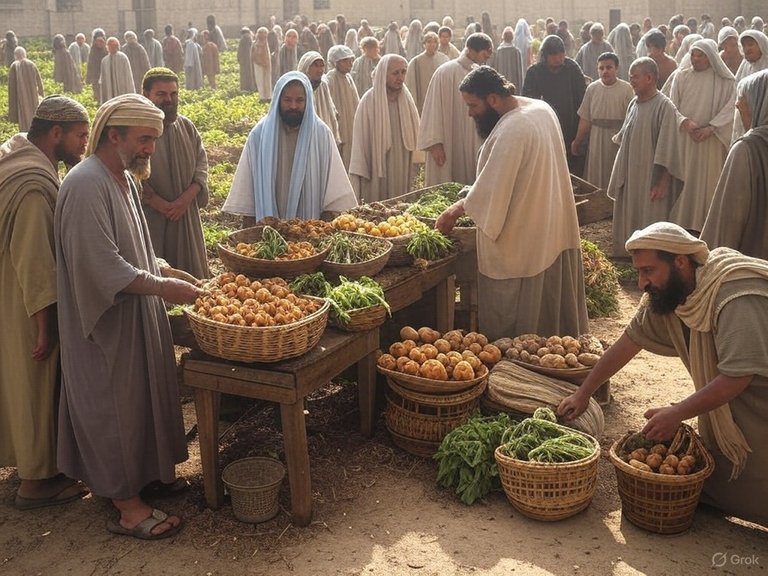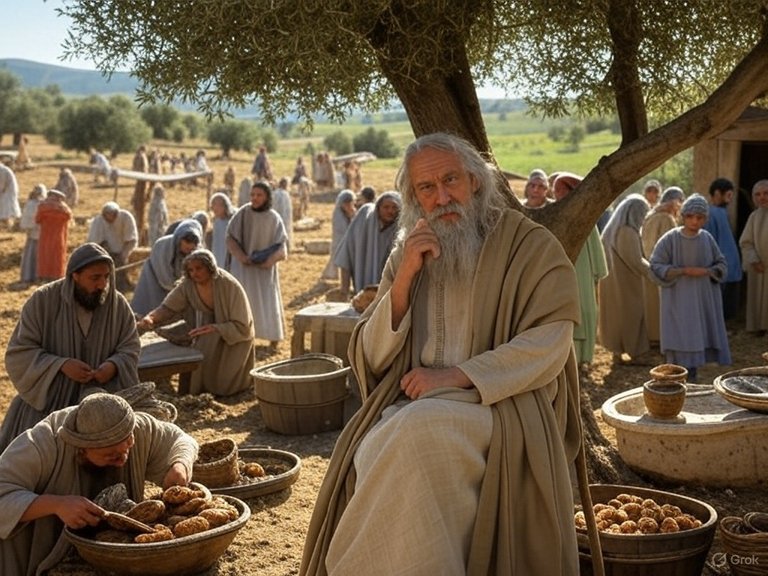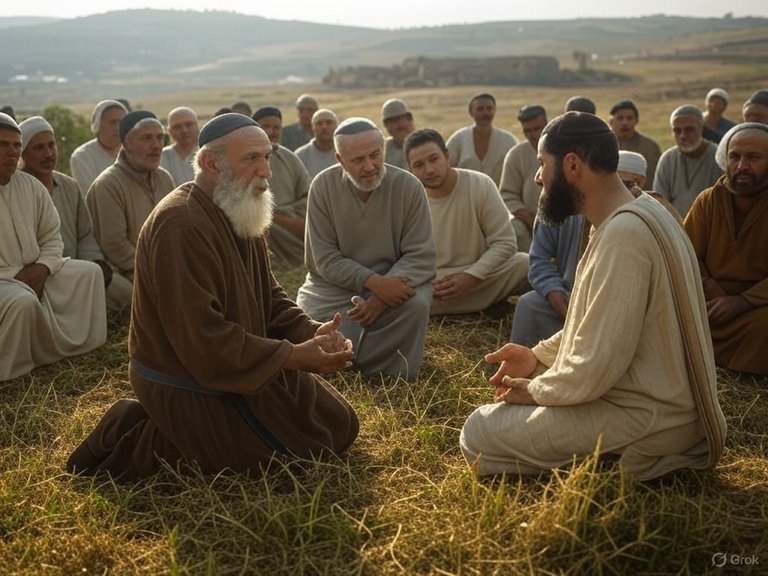Capitalism in Ancient Judaism: Evidence of Voluntary Cooperation and Private Ownership in Pre-Monarchic Israel

Image Source: Grok AI generated image.
Before the establishment of the monarchy in Israel, the nation operated under a decentralized system rooted in voluntary cooperation, individual responsibility, and private ownership, as seen during the period of the Judges. This era lacked a centralized king or government to enforce regulations, relying instead on tribal structures and adherence to God’s law as delivered through Moses. The economy functioned as a free, unregulated market where individuals managed their own property and engaged in trade and labor voluntarily. Private ownership was a foundational principle, with land allotted to families and tribes as an inheritance from God, to be maintained and cultivated by them."
Biblical Support:
Volunteerism and Decentralized Leadership
Judges 21:25: "In those days there was no king in Israel; everyone did what was right in his own eyes."
This verse highlights the absence of a centralized authority, suggesting that people acted independently and voluntarily, guided by their own understanding of right and wrong within the framework of the TORAH. While this sometimes led to chaos, it reflects a system where individuals and communities operated without a king’s oversight.
Judges 2:16-18: "Then the Lord raised up judges, who saved them out of the hand of those who plundered them... Whenever the Lord raised up judges for them, the Lord was with the judge, and he saved them from the hand of their enemies all the days of the judge."
The judges were not permanent rulers but were raised up as needed, indicating a voluntary response to leadership rather than a structured, enforced hierarchy.

Image Source: Grok AI generated image
Free Unregulated Market
Exodus 21:2-6 and Deuteronomy 15:12-18: These passages outline laws regarding Hebrew servants, who could voluntarily enter service and be released after six years unless they chose to stay. This reflects a labor market based on personal agreements rather than state regulation.
Example: Deuteronomy 15:12-13: "If your brother, a Hebrew man or a Hebrew woman, is sold to you, he shall serve you six years, and in the seventh year you shall let him go free from you. And when you let him go free from you, you shall not let him go empty-handed."
This shows economic relationships governed by individual contracts and voluntary decisions, not centralized control.
Ruth 2:2-3: "And Ruth the Moabite said to Naomi, 'Let me go to the field and glean among the ears of grain after him in whose sight I shall find favor.' ... So she went out and began to glean in the fields behind the reapers."
Ruth’s ability to glean freely in Boaz’s field illustrates a market where landowners managed their property and allowed voluntary participation in economic activities like gleaning, as permitted by the law (Leviticus 19:9-10), without state interference.
Private Ownership
Numbers 26:52-56: "The Lord spoke to Moses, saying, 'Among these the land shall be divided for inheritance according to the number of names... Each inheritance shall be given according to those who were numbered of them.'"
Land was distributed to tribes and families as a perpetual inheritance, emphasizing private ownership as a divine allocation rather than state-controlled property.
Joshua 19:49-50: "When they had finished distributing the several territories of the land as an inheritance, the people of Israel gave an inheritance among them to Joshua the son of Nun. By command of the Lord they gave him the city that he asked."
This shows that even leaders like Joshua received private land allotments, reinforcing the principle of individual ownership.
Leviticus 25:23-24: "The land shall not be sold in perpetuity, for the land is mine. For you are strangers and sojourners with me. And in all the country you possess, you shall allow a redemption of the land."
While God ultimately owns the land, it was entrusted to families as private stewards, with mechanisms like redemption ensuring it remained within the family, free from permanent alienation or centralized seizure.
This portrayal aligns with the biblical narrative of Israel before the kings, where God’s law provided a moral and legal framework, but daily life—economic, social, and judicial—was largely managed through voluntary cooperation, tribal governance, and respect for private property. The transition to a monarchy in 1 Samuel 8, where the people demanded a king "like all the nations," marks a shift away from this decentralized system toward centralized authority.

Image Source: Grok AI generated
!MEME
Posted using MemeHive
Credit: ybf
Earn Crypto for your Memes @ HiveMe.me!